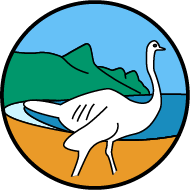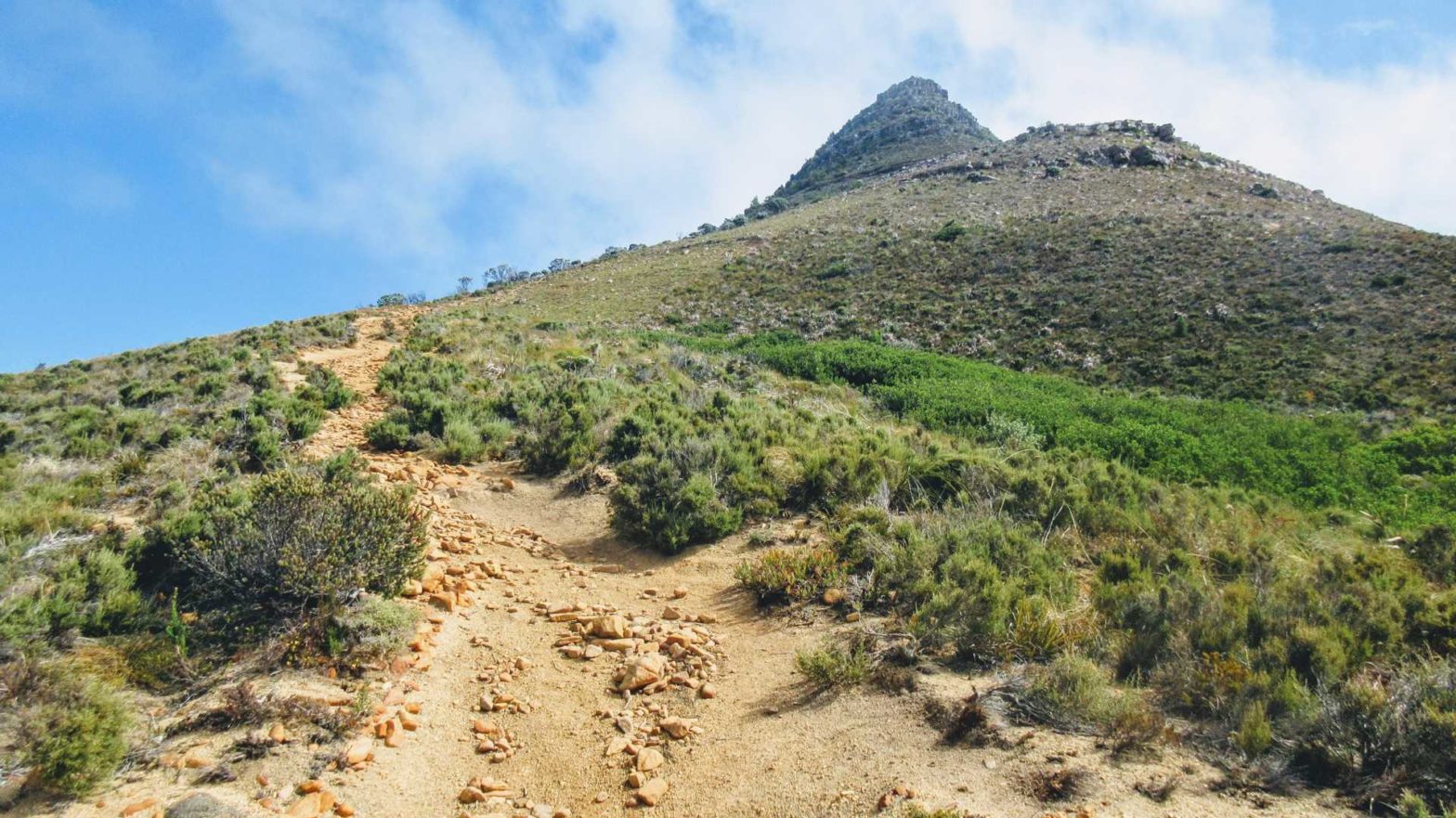By Vicky · Published Mar. 6th, 2021 · Updated Nov. 23rd, 2022
The hike up Little Lions Head is a relatively short, but with some tricky little scrambles. From the top, you have 360-degree views over Hout Bay, Llandundo and the surroundings.
Location
Start from Valley View Drive, at the top of Mount Rhodes estate in Hout Bay. It’s a roughly 30-minute drive from the centre of Cape Town. There is parking on the side of the road, within the Mount Rhodes gated estate.
Little Lions Head Hike Map
Get the route by downloading the .gpx or .kml file below. For navigation with Maps.me on your mobile phone, simply download the .kml file and open to add it to the Maps.me bookmarks.
Leaving your car, the hike starts through a gate to continue along the trail. This gate is open for pedestrians during daylight hours (see Tips below).
Tips
- Even though this hike is short, there are a few tricky little scrambles. However, there is never any great exposure.
- The path is clear to start with, then becomes less so. Keep on heading towards the top, look out for the little cairns.
- This hike starts through some gates. These are only open 6am-8pm in summer, 8 am-6:30 pm in winter
- If the gate is locked, you’ll need to buzz the intercom for security to come and open it for you.
- Get some hiking poles* to take the pressure off your knees.
- Find more hikes near Cape Town and rest of South Africa in our South Africa Guide.
Once you’re through the gate, continue along the road. Take the left fork at the end, and you’ll see a trail leaving from the tarmac towards the top of Little Lions Head. After 100 metres, you’ll meet a much clearer trail heading upwards.
You’ll see a bench on the oceanside. Admire the view from this bench, but don’t continue on the small trail that contours around the side. Return back to the main trail, to continue upwards. The trail becomes less obvious. Look out for the small cairns. Remember, always head for the top.
Nearer the top, there is some scrambling. You might have to search a bit for the cairns, and the best way up. Only one bit required a little skill, the rest was simple scrambling.
After some more scrambling and searching for cairns, you’ll reach the top. The views from here are great, with 360-degree visibility. You can see the beaches and towns of Hout Bay and Llandundno, as well as the mountains of Karbonkelberg, Constantiaberg and the Table Mountain massif to the north.
From the top, hike back down the way you came. Take care on the scrambles, as they can be harder on the way down than on the way up! Soon you’ll be back at the road at the bottom, and back through the gates to your car.
For more great walks in South Africa, check out our South Africa Hiking Guide, or our hiking trip from Cape Town to the Drakensberg.
Geology of Little Lions Head
There is an important change in rock type as you go up Lions Head. At the top are layers of sandstone. In contrast, the lower slopes are covered with rugged granite boulders.
The boundary between two different rock types is called a contact. You cross the contact on this trail, roughly halfway up the mountain. See if you can tell when the rock type underfoot changes from granite to sandstone!





